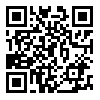Tue, Feb 3, 2026
Volume 9 - Continuous Publishing
Iran J Neurosurg 2023, 9 - Continuous Publishing: 32-37 |
Back to browse issues page
Download citation:
BibTeX | RIS | EndNote | Medlars | ProCite | Reference Manager | RefWorks
Send citation to:



BibTeX | RIS | EndNote | Medlars | ProCite | Reference Manager | RefWorks
Send citation to:
Ebrahimi H, Azimi H, Kolahchi Z, Gholami Z, Nasseri S, Adib M, et al . The Attitude of Neurosurgeons Toward Telemedicine During COVID-19 Pandemic. Iran J Neurosurg 2023; 9 : 5
URL: http://irjns.org/article-1-340-en.html
URL: http://irjns.org/article-1-340-en.html
Hannan Ebrahimi1 

 , Hesam Azimi1
, Hesam Azimi1 

 , Zahra Kolahchi2
, Zahra Kolahchi2 

 , Zeinab Gholami1
, Zeinab Gholami1 

 , Shahin Nasseri1
, Shahin Nasseri1 

 , Maryam Adib3
, Maryam Adib3 

 , Abbas Amirjamshidi1
, Abbas Amirjamshidi1 

 , Mohammad Shirani Bidabadi2
, Mohammad Shirani Bidabadi2 

 , Ahmad Pour-Rashidi *4
, Ahmad Pour-Rashidi *4 




 , Hesam Azimi1
, Hesam Azimi1 

 , Zahra Kolahchi2
, Zahra Kolahchi2 

 , Zeinab Gholami1
, Zeinab Gholami1 

 , Shahin Nasseri1
, Shahin Nasseri1 

 , Maryam Adib3
, Maryam Adib3 

 , Abbas Amirjamshidi1
, Abbas Amirjamshidi1 

 , Mohammad Shirani Bidabadi2
, Mohammad Shirani Bidabadi2 

 , Ahmad Pour-Rashidi *4
, Ahmad Pour-Rashidi *4 


1- Department of Neurosurgery, Sina Hospital, Tehran University of Medical Sciences, Tehran, Iran
2- Department of Neurosurgery, Sina Hospital, Tehran University of Medical Sciences (TUMS), Tehran, Iran
3- Department of Biomedical Engineering, Central Tehran Branch, Islamic Azad University, Tehran, Iran
4- Department of Neurosurgery, Sina Hospital, Tehran University of Medical Sciences, Tehran, Iran ,ahmadpourrashidi89@gmail.com
2- Department of Neurosurgery, Sina Hospital, Tehran University of Medical Sciences (TUMS), Tehran, Iran
3- Department of Biomedical Engineering, Central Tehran Branch, Islamic Azad University, Tehran, Iran
4- Department of Neurosurgery, Sina Hospital, Tehran University of Medical Sciences, Tehran, Iran ,
Abstract: (3283 Views)
Background and Aim: Telemedicine can be considered a primary modality of patient care for non-emergent conditions in the COVID-19 era. The usage and expansion of telemedicine are important and inevitable issues. We decided to investigate the neurosurgeons’ perspective on telemedicine in the treatment and follow-up of neurosurgical patients during the COVID-19 period.
Methods and Materials/Patients: This cross-sectional study was carried out in the Department of Neurosurgery, Tehran, from June 2021 to July 2021. An internet-based questionnaire was distributed among all postgraduate and assistant neurosurgeons at the Tehran University of Medical Sciences. Statistical analysis was performed using SPPS (IBM SPSS Statistics for Windows, Version 24.0. Armonk, NY: IBM Corp; 2016).
Results: This study was performed among 74 neurosurgeons who were mainly male (89.2%). Their mean age was 33.16±5.69 years (ranging from 27 to 62 years), and telemedicine has not been used previously in 37 precipitants (50%). Most precipitants preferred telemedicine for follow-up (93.24%). The common reasons for unimplemented telemedicine were determined by insurance and repayment obstacles (58.11%). Most of the participants believed that telemedicine should first be adapted to working condition and local setting, then it can be applied more in the future. Eventually, the effectiveness of telemedicine was controversial, according to most neurosurgeons’ replies.
Conclusion: This study indicated neurosurgeons’ preference for telemedicine. They considered it a comfortable alternative. However, the effectiveness of telemedicine is controversial as it should be adapted first and then used extensively for future purposes. It is also suggested that future studies compare the results of this research with those of studies performed after the COVID-19 outbreak.
Methods and Materials/Patients: This cross-sectional study was carried out in the Department of Neurosurgery, Tehran, from June 2021 to July 2021. An internet-based questionnaire was distributed among all postgraduate and assistant neurosurgeons at the Tehran University of Medical Sciences. Statistical analysis was performed using SPPS (IBM SPSS Statistics for Windows, Version 24.0. Armonk, NY: IBM Corp; 2016).
Results: This study was performed among 74 neurosurgeons who were mainly male (89.2%). Their mean age was 33.16±5.69 years (ranging from 27 to 62 years), and telemedicine has not been used previously in 37 precipitants (50%). Most precipitants preferred telemedicine for follow-up (93.24%). The common reasons for unimplemented telemedicine were determined by insurance and repayment obstacles (58.11%). Most of the participants believed that telemedicine should first be adapted to working condition and local setting, then it can be applied more in the future. Eventually, the effectiveness of telemedicine was controversial, according to most neurosurgeons’ replies.
Conclusion: This study indicated neurosurgeons’ preference for telemedicine. They considered it a comfortable alternative. However, the effectiveness of telemedicine is controversial as it should be adapted first and then used extensively for future purposes. It is also suggested that future studies compare the results of this research with those of studies performed after the COVID-19 outbreak.
Article number: 5
Type of Study: Research |
Subject:
Basic Neurosurgery
Send email to the article author
| Rights and Permissions | |
 |
This work is licensed under a Creative Commons Attribution-NonCommercial 4.0 International License. |



